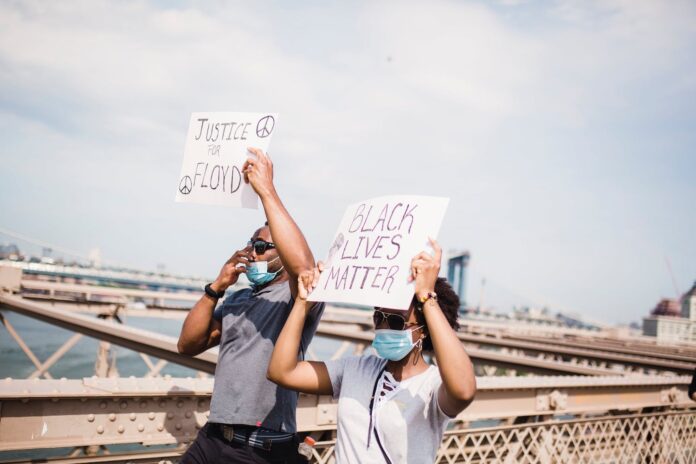
By Helen Bezuneh, Special to the AFRO
In the aftermath of the widely publicized police killing of George Floyd in 2020, the U.S. faced what was commonly referred to as a “racial reckoning.” During this period, corporations and universities rushed to issue public statements expressing not only their dedication to advancing racial justice, but also pledging to implement explicit diversity, equity and inclusion initiatives (DEI), such as the diversification of the workforce. However, three years later, several corporations have proceeded to lay off numbers of DEI workers amid far-right backlash to diversity programs.
Wells Fargo, American Airlines and Glassdoor lead the list of companies with the largest declines in their share of diverse new hires from July 2022 to February 2023, according to Revelio Labs, a workforce analytics company. Wells Fargo’s share declined by 4.65 percent, American Airlines’ share shrunk by 3.35 percent and Glassdoor’s share waned by 5.81 percent. Attrition rates for DEI roles have exceeded those of non-DEI roles at more than 600 U.S. companies that implemented workforce reductions since late 2020.
While American Airlines declined the AFRO’s request for comment, Wells Fargo provided the AFRO with a statement in which they reemphasized their aspirations for diversity, equity and inclusion.
“Our commitment to diversity, equity and inclusion (DEI) is unwavering,” a Wells Fargo spokesperson wrote. “We are focused on our three strategic priorities tied to DEI: Increasing diverse representation within Wells Fargo, better serving and growing diverse customer segments and increasing spend with diverse suppliers. We have made progress in our efforts to build more sustainable communities, including introducing initiatives in homeownership, banking inclusion and other areas. While there is more work to do, we are committed to achieving enduring results for our colleagues, customers and communities.”
Following the recent Supreme Court decision to eliminate affirmative action in colleges, DEI efforts across varied sectors have encountered harsh criticism. Many argue that this has led to the downsizing of DEI teams within corporations, influenced in part by diminishing pressure on companies to meet demands for equity.
Amazon, Applebees and Twitter have had the largest outflows of DEI talent with seniority cutoff since July 2022. According to a LinkedIn report, the recruitment of chief diversity officers (CDOs) witnessed a notable decline by 4.51 percent in 2022. This marks a significant shift from the substantial hiring growth observed in 2020 and 2021.
Due to budget cuts and mass layoffs resulting from dwindling sales, many technology companies in particular have entirely dismantled their DEI departments.
The years 2020 and 2021 saw a surge in DEI initiatives, signaling a hopeful shift in racial justice in the U.S. A number of companies initiated the formation of DEI departments, the hiring of CDOs and the expansion of their DEI teams. In the three months following George Floyd’s murder, DEI job listings increased 123 percent, according to Indeed. The rate of new CDO hires in 2021 was nearly triple the rate of hires in the previous 16 months.
Following nationwide protests for racial justice in 2020, companies and organizations released statements that proclaimed dedication to promoting racial equity. That year, JPMorgan said that they would provide $30 billion in loans to Black and Latino homebuyers and small business efforts over a five year period to fulfill their fight against systemic racism within economic sectors. According to a recent summary of progress by JPMorgan, the bank has “deployed or committed” more than $13 billion of their goal so far. JPMorgan’s percentage of workers of color has shown minimal change from 2019 to 2022, according to research conducted by Statista. As of December 2022, white employees made up about 83 percent of JPMorgan’s U.S.-based leadership positions.
“For decades, we’ve sustained relationships and collaborated with community and civil rights organizations to help inform, innovate and calibrate efforts to overlay a broader, more inclusive and equitable lens into our business – so that all of our employees, customers and communities, including those from diverse backgrounds, can grow and thrive,” JPMorgan wrote in a statement shared with the AFRO. “Our efforts precede the murder of Mr. George Floyd.”
“For example, in 2019 we established Advancing Black Pathways (ABP) to build upon our efforts to support economic development within the Black community globally,” they added. “ABP focuses on four key areas where there are racial and economic disparities that create barriers to long-term financial success: careers and skill building, business growth and entrepreneurship, financial health and wealth creation, and community development. As we celebrate our fifth year, ABP is focused on building upon our legacy redefining wealth and prosperity for Black people everywhere.”
In a memo to employees in 2020, then-chief executive of Wells Fargo vowed to consider a broad range of candidates for positions at the bank. However, he also mentioned that Wells Fargo struggles to find qualified Black candidates, a statement for which he later issued an apology.
With the recent decline in CDO hires, some view such statements as having been made solely for optics rather than genuine commitment.
Hailey Bowley, director of equity, diversity and belonging at KABOOM!, spoke on the diminishment of DEI initiatives in November at the Equity in Action Conference, hosted by Associated Black Charities.
“Employees have been indicating that they have no longer been setting DEI-specific goals,” said Bowley. “We’re now seeing that Black workers are among the most unhappy with 49 percent of those surveyed saying they want to quit their jobs, according to an Indeed report. A lot happened in the aftermath. There were promises made, there were commitments made, there were half-hearted initiatives put in place for a time, for a period. And now we’re here.”


